Trapped in a war zone: Sudanese Americans in central Ohio worry for loved ones
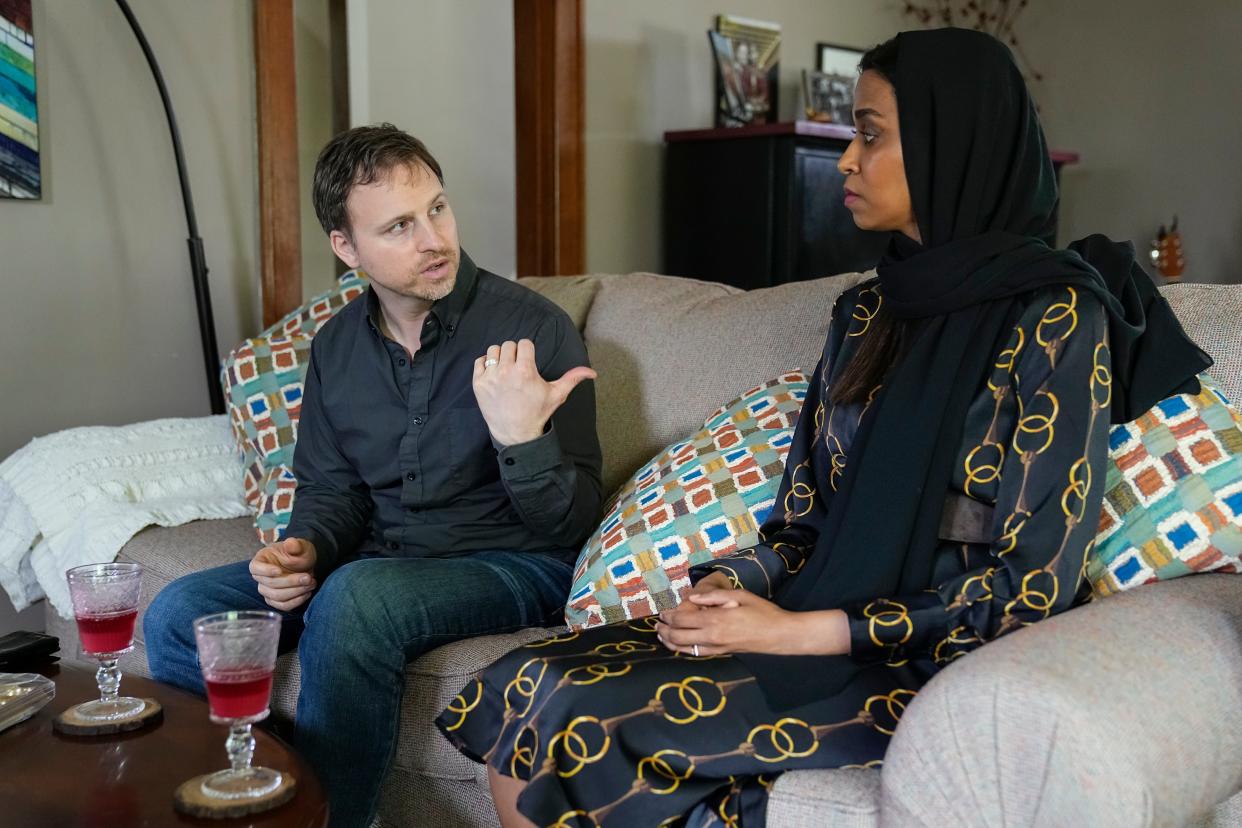
Upper Arlington resident Siema Eljack’s 85-year-old father is trapped in Khartoum.
Eljack, 47, a mental health therapist, told The Dispatch that her father, a university professor, is stuck at home in the Sudanese capital, which has seen fierce fighting since a civil war broke out about a month ago between the Sudanese army and paramilitary Rapid Support Forces. He takes various medications and has enough medicine for two months, but Eljack worries what will happen after that time has lapsed.
“A lot of people are like that. My aunt has kidney failure, and does dialysis three days a week. There's only one place in Khartoum that does it,” Eljack said.
Eljack is one of more than 1,500 Sudanese and Sudanese Americans in central Ohio, according to community leader Mohamed Jadkarim Salim, who lives in Hilliard. Many have family members affected by the fighting.
The community is largely supportive of the Biden administration’s ongoing efforts, with Saudi Arabia, to broker talks between the warring military factions, but few are optimistic about peace returning soon. Community members are raising funds for humanitarian relief efforts back home, and some are petitioning the U.S. government to give refuge to those fleeing the conflict by using humanitarian parole.
Tarig Mukhtar, president of the nonprofit Sudanese American Community Development Organization (SACDO), said he feels torn between the organization’s local work and the need to support Sudan.
“We have constituents here we need to take care of, but most importantly, we have our fellow Sudanese back home, and their lives are in jeopardy,” said Mukhtar, 52, a Dublin resident and a pharmacist.

How did the conflict start, and why is the humanitarian situation so bad?
Not long ago, many Sudanese people felt optimistic about the country’s future. In 2019, a popular democratic uprising overthrew the 30-year autocratic regime of President Omar al-Bashir. A civilian council then shared power with military leaders ahead of planned elections, but in October 2021 the military and the Rapid Support Forces (RSF) took over in a coup — dashing hopes for democracy.
Then, on April 15, fighting broke out between the Sudanese military and the RSF. It is unclear who fired the first shot, but both sides seemed motivated to establish their supremacy amidst a proposed transition to civilian rule, which has since fallen through, according to the International Crisis Group. Fighting has been concentrated in the capital, but has also continued in areas like the western Darfur region, where the RSF got its start in the early 2000s as a militia supporting al-Bashir’s bloody effort to suppress a rebellion.
The current conflict is not primarily ethnic, but some fear it could eventually take on ethnic dimensions like the earlier Darfur conflict — for which al-Bashir faces genocide charges at the International Criminal Court.
Malaz Bakhit, 35, is a Sudanese American dentist practicing as a dental assistant who lives in Clintonville and whose parents and quadriplegic brother are stuck in Khartoum. The family's neighborhood in Khartoum was bombed by Sudanese armed forces and overrun by RSF fighters, she said, and her family recently fled to another part of the city, where they venture out only to find essentials like food and water.
Bakhit said the leaders of the military and of the RSF — Lt. Gen. Abdel Fattah al-Burhan and Mohamed Hamdan “Hemedti” Dagalo, respectively — are both motivated by personal ambitions.
“They’re the same to me. Both of them are not good,” Bakhit said.

Nearly 700 people have been killed and a million people across Sudan have fled their homes since mid-April, including 200,000 people who went to neighboring countries, according to the United Nations. The lack of a cease-fire has made it difficult for civilians caught in the crossfire to find basics such as food, water and medicine, and has hindered the efforts of professional humanitarian groups, according to the International Committee of the Red Cross.
The fighting has also affected 1.1 million refugees from South Sudan, Eritrea and Ethiopia who were living in Sudan, according to the U.N. Refugee Agency. Refugees in Sudan have been targeted by robbers and kidnappers amidst the conflict, according to Mulugeta Gebresilasie, a refugee resettlement worker with Community Refugee and Immigration Services on Columbus’ Northwest Side, who is originally from Eritrea.
The U.S. government recommended Americans there leave the country because of the deteriorating situation. On April 23, U.S. forces evacuated the American Embassy, although several thousand Americans — primarily Sudanese-American dual citizens — may be left in the country.
What is Sudan’s strategic importance?
Besides humanitarian arguments, there are strategic reasons why Americans should be concerned about Sudan, according to Joseph Campbell, 38, a lecturer at Ohio State University and Bakhit’s husband.
“From the geopolitical (side) it's extremely important that Sudan remains a stable place with some level of freedom, because if it moves towards parties that are hostile towards the United States, that's a major blow to global security,” he said.
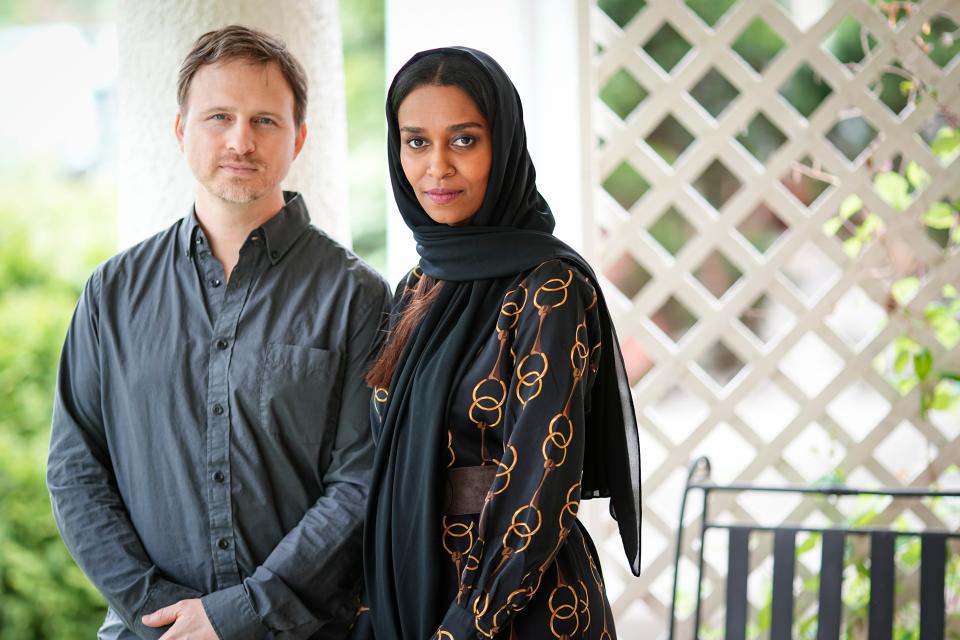
Sudan controls part of the Nile River, which is essential to life in much of Egypt downstream. Sudan also has a strategic location along the Red Sea, where Russia is seeking to build a military base to match the U.S. base in nearby Djibouti.
U.S. officials have accused Russia of supporting the RSF in the current conflict. The RSF is also seen as close to the United Arab Emirates, whereas the Sudanese military has ties to the military regime in Egypt.
Salim, the local community leader, said the U.S. should not get involved in helping either the military or the RSF, since neither are dedicated to democracy.
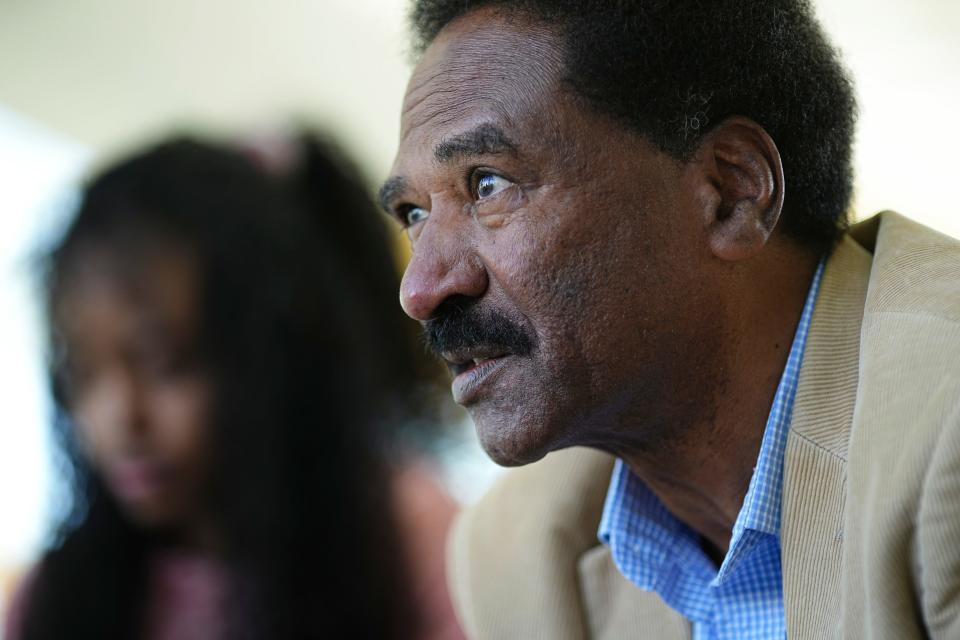
What efforts does the local community support?
Salim and Tarig say they want the U.S. to continue its diplomatic efforts with Saudi Arabia to broker a peace, but in the meantime, more effort is needed to bring essential humanitarian supplies to people in Sudan and refugees in neighboring countries.
Tarig’s Sudanese American nonprofit, SACDO, is holding a bake sale fundraiser on Friday after prayers at the Noor Islamic Cultural Center, 5001 Wilcox Road, Hilliard. Donations will support the Sudanese American Physicians Association, a Texas-based nonprofit that is providing medical care to displaced people in Sudan, as well as Sudan NextGen, another nonprofit providing humanitarian aid, according to Tarig. Sumia Mohamed, 46, a Sudanese American environmental consultant and Ohio State University lecturer, has also been helping to raise funds for Sudan NextGen in Upper Arlington.
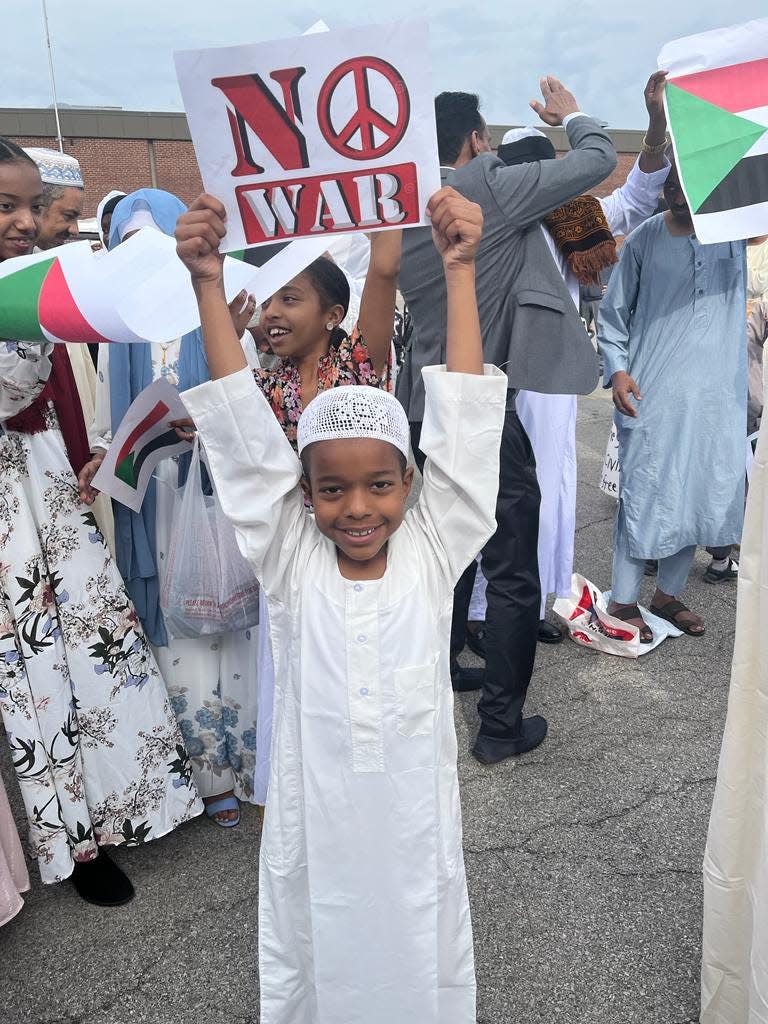
Separately, other organizations like Doctors Without Borders and the International Rescue Committee are also collecting donations for Sudan.
Another group of Sudanese Americans have started an online petition calling on the Biden administration to admit Sudanese people who have American relatives into the U.S. using humanitarian parole — a temporary status that was given to many Afghans and Ukrainians, and which was recently expanded to include Cubans, Haitians, Nicaraguans and Venezuelans.
Eljack, the mental health therapist from Upper Arlington, said humanitarian parole is the right thing to do.
“Look at what the U.S. and other countries have done for Ukraine over the past year … it’s double standards,” Eljack said. “It is just a basic humanitarian call to action that we are asking (for).”
Peter Gill covers immigration, New American communities and religion for the Dispatch in partnership with Report for America. You can support work like his with a tax-deductible donation to Report for America at: bit.ly/3fNsGaZ.
pgill@dispatch.com
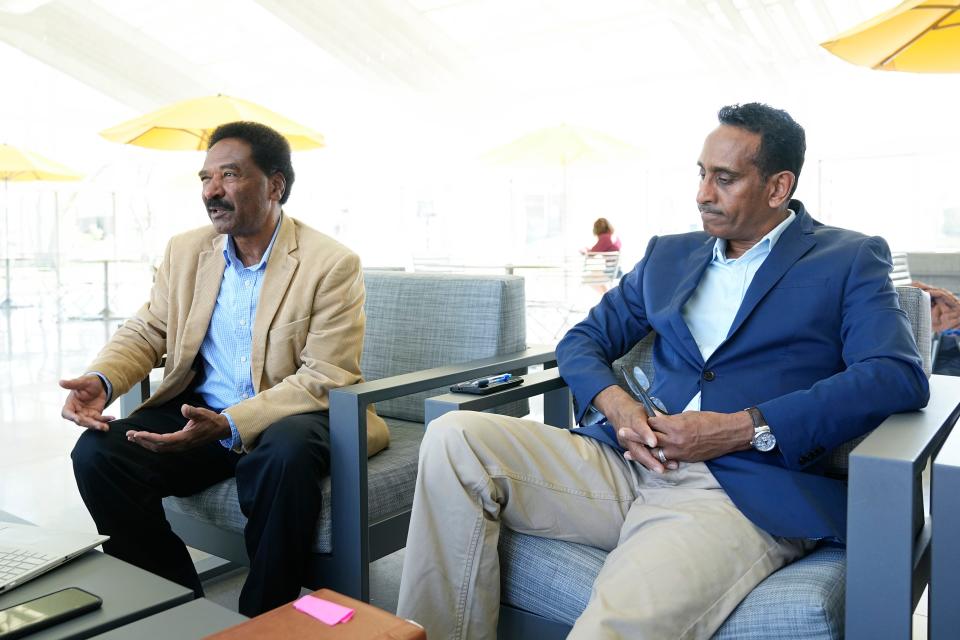
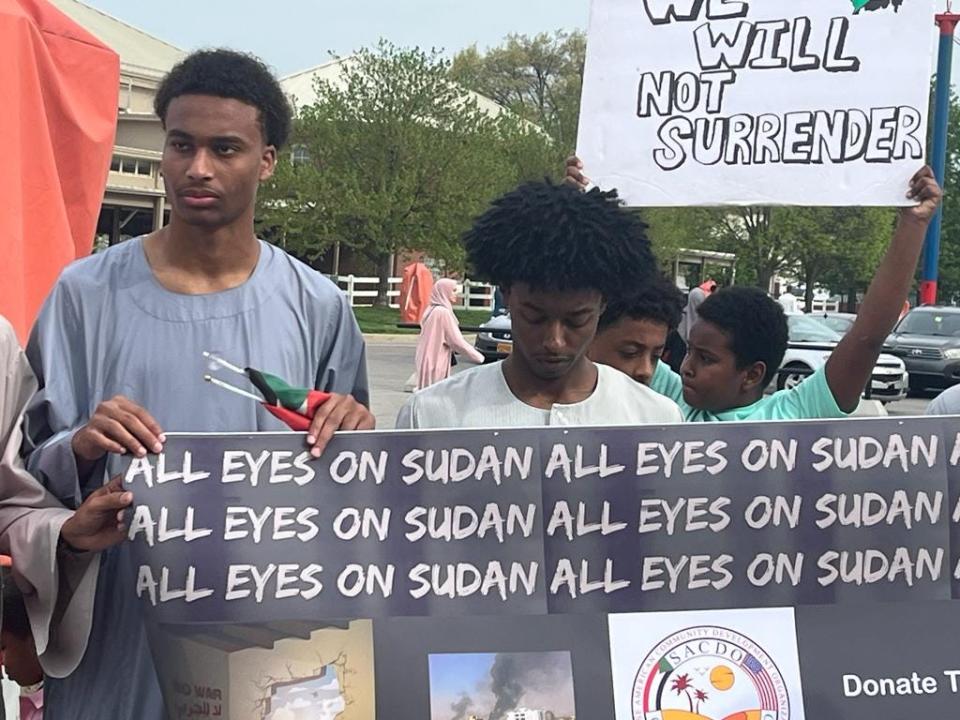
Get more political analysis by listening to the Ohio Politics Explained podcast
This article originally appeared on The Columbus Dispatch: Sudanese Americans in central Ohio worry for loved ones amidst war

